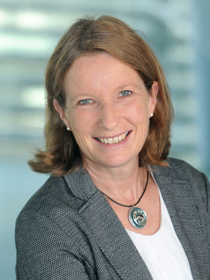The Department of Migration and Globalisation at the University for Continuing Education is inviting interested recent graduates in a social science discipline to apply for a short-term research fellowship between December 2023 and March 2024 in preparation of a PhD research proposal for the FTI-dissertation funding scheme of the GFF-Noe – the Lower Austrian research funding body.
Thematic focus and linkage to MIrreM project
The successful visiting fellow will be supported in preparing a PhD proposal closely linked to the Horizon Europe funded project “Measuring irregular migration and related policies” (MIrreM). MIrreM examines the quantitative dimension of irregular migration and related policies. MIrreM assesses existing estimates and statistical indicators and explores new quantitative approaches. A special focus lies on regularisation policies and their impact.
The visiting fellow is expected to develop a proposal for a PhD project focusing on quantitative dimensions of migrant irregularity in Austria, such as the size or characteristics of the irregular migrant population or specific subgroups of migrants in an irregular or otherwise precarious legal status, legal status trajectories of irregular migrants in Austria, pathways in and out of irregularity or other aspects, applying methods and approaches explored, developed and tested in the framework of the MIrreM project, but also complementing these by own approaches.
Against the background that existing attempts at quantifying and describing the characteristics of the irregular migrant population in Austria are few and far in between and severely limited, the PhD project is expected to examine different dimensions of irregular migrants’ presence in Austria involving a quantitative perspective and using novel approaches. While some form of quantitative dimension is expected, the application of other methods, including a fully-fledged mixed-method design are explicitly welcome. The primary empirical focus of the PhD should be on Austria, but candidates are expected to place the research in a comparative perspective. Depending on the exact focus chosen as well as considerations of feasibility, we also welcome a comparative design involving one or more other countries.
The empirical focus on Austria, on the one hand, reflects practical considerations, including the ease of access to potential fieldwork locations as well as existing links with relevant stakeholders from the MIrreM and other research projects facilitating both the preparation and – if funded – the implementation of the PhD project. On the other hand, it also reflects a concern to enhance the societal impact of the project, by supporting the improvement of the evidence base on irregular migration in Austria, including by exploiting the potential of existing data sources and developing methods that can be employed to assess different dimension of the irregular migrant population.
Conditions of the fellowship
The purpose and goal of this research fellowship is to prepare a sound PhD research proposal by mid-February 2024 for an internal review by the PhD Hearing Committee and a final proposal by March 29th March, both prerequisites for being accepted as a PhD student at the Department of Migration and Globalisation. Specific information about the funding body and the call can be found here: www.gff-noe.at/calls/#fti-dissertationen .
During this three-month research fellowship, the visiting fellows will be working on the draft proposal, discuss progress in seminars and receive guidance and feedback from migration scholars of different backgrounds and disciplines. Participation in relevant workshops organised in the framework of the MIrreM project will also be supported. The candidate will benefit from an international research environment, a familial atmosphere, and opportunities for intellectual exchange with other researchers as well as other PhD students. In addition, the candidate will also have access to support from researchers within the MIrreM consortium, including through participation in workshops organised in the framework of the project. The quality of the PhD proposal will be continuously evaluated over the course of the fellowship and only high-quality proposals will be supported for submission to the funding body.
We encourage the successful fellow to consider a regular presence at the Department for Migration and Globalisation at the University for Continuing Education Krems (Danube University Krems) during the fellowship. As a minimum, we expect two weeks of presence at the department and active online participation in the remainder of the research period. The selected research fellow will receive reimbursement of travel and cost of stay up to maximum 2000 EUR; beyond this amount, fellows need to provide for themselves.
If the PhD proposal development and funding application are successful, candidates will receive a fixed term employment contract for three years to complete a PhD in Migration Studies, enrolling into the PhD programme in Migration Studies at the Danube University Krems at the latest by autumn 2024.
Your profile
- Applicants for this fellowship are expected to have received a very good master’s degree in a social science discipline (preferably recently acquired or recent work experience in research),
- have a proven interest in irregular migration,
- have experience working with quantitative as well as qualitative methods and
- very good oral and written communication skills in German and English. We are looking for candidates who are able to work independently but also enjoy collaborating in an interdisciplinary and diverse team.
We value diversity and welcome all applications – regardless of gender, nationality, ethnicity, social origin, religion/belief, disability, age and sexual orientation and identity. Applicants with a migration and displacement background are strongly encouraged to apply.
How to apply
Full applications for this research fellowship include a complete CV, a motivation letter, a preliminary research proposal outlining initial research ideas on 4-5 pages (in English), and one writing sample (in German or English).
Please send your application by email to phd-migration@donau-uni.ac.at until 24 November 2023.
For further questions regarding practicalities of the fellowship, please contact Ms. Tanja Schraml (tanja.schraml@donau-uni.ac.at). For content related questions please contact Ass.-Prof. Dr. Albert Kraler (albert.kraler@donau-uni.ac.at).
We are looking forward to your application!
